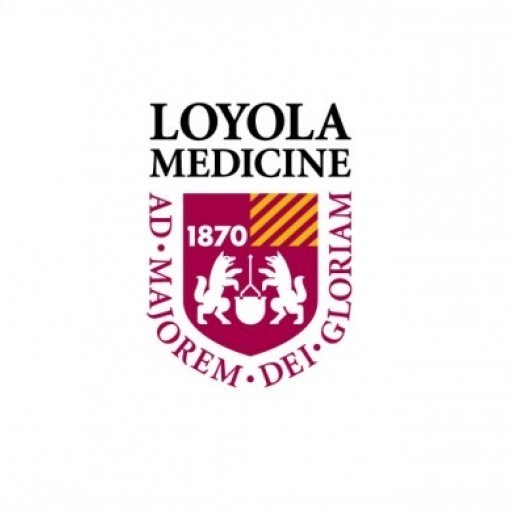Photos of university / #unioslo
program_description: "The Master's Degree Program in Philosophy at the University of Oslo offers students a comprehensive and in-depth exploration of philosophical thought, history, and practice. This program is designed for individuals who wish to engage critically with fundamental questions concerning existence, knowledge, ethics, and language. Throughout the program, students will have the opportunity to study a wide range of philosophical traditions, from ancient to modern times, and to develop their analytical, argumentative, and research skills. The curriculum includes courses in metaphysics, epistemology, ethics, political philosophy, philosophy of mind, and philosophy of science, among others. Students are encouraged to pursue independent research projects, participate in seminars, and collaborate with faculty members renowned for their expertise in various philosophical fields. The program also emphasizes interdisciplinary approaches, integrating insights from science, arts, and social sciences to enrich philosophical inquiry. Additionally, students can benefit from the university's vibrant academic community, engaging in discussions, conferences, and workshops that broaden their understanding and professional network. Graduates of this program are well-equipped for careers in academia, research, public policy, education, or other fields requiring critical thinking and complex problem-solving skills. The program's structure allows for flexibility, enabling students to tailor their studies according to their interests and career goals, including options for specialization or elective courses. The University of Oslo's Philosophy Master's Program is committed to fostering an intellectually stimulating environment where students can challenge assumptions, develop original ideas, and contribute to ongoing philosophical debates and societal issues."
The Master's Programme in [Program Name] at the University of Oslo offers students a comprehensive and in-depth education in [field of study], preparing them for both academic and professional careers. The program is designed to provide a solid theoretical foundation combined with practical applications, fostering critical thinking, analytical skills, and research capabilities. Throughout the duration of the program, students will engage with a diverse range of topics, including [list of core subjects], which are essential for understanding the complexities and dynamics of [field of study].
The curriculum emphasizes interdisciplinary approaches, encouraging students to explore innovative solutions to real-world challenges. Students will participate in lectures, seminars, and workshops led by leading experts and researchers from the university's renowned faculty. In addition to coursework, students are expected to undertake independent research projects, culminating in a master's thesis that contributes new insights to their field. This research component allows students to deepen their understanding of specific topics and develop their skills in data analysis, critical evaluation, and scholarly writing.
The program also offers opportunities for international collaboration and internships, giving students valuable experience and networking possibilities within the global professional community. The Department of [Department Name] at the University of Oslo provides state-of-the-art facilities and resources, including laboratories, libraries, and online learning platforms, ensuring a conducive environment for academic growth.
Graduates of the Master's Programme in [Program Name] will be equipped with the knowledge and skills necessary to pursue careers in research, industry, public sector organizations, or continue their studies at the doctoral level. The program's rigorous academic standards, combined with its focus on practical application and international outlook, make it an excellent choice for motivated students seeking to make a meaningful impact in the field of [field of study].
Program requirements for the Master's Degree in Philosophy at the University of Oslo include a bachelor's degree or equivalent with a specialization in philosophy or a related field. Applicants must demonstrate proficiency in English, typically through standardized tests such as TOEFL or IELTS, unless they have documented education in English. Prior coursework in philosophy, especially in areas such as ethics, epistemology, metaphysics, or logic, is advantageous. The selection process emphasizes academic excellence, relevant experience, and a clear motivation for pursuing advanced studies in philosophy. Candidates may be required to submit a letter of motivation, CV, academic transcripts, and letters of recommendation. Additionally, some programs may request a written statement outlining research interests or a project proposal, particularly for applicants aiming to undertake research theses. International students should review specific language and documentation requirements to ensure compliance. The program encourages interdisciplinary research, so relevant background in related fields such as political science, anthropology, or psychology can strengthen an application. The university values diversity and holistic evaluation, considering extracurricular activities, work experience, or other accomplishments that demonstrate analytical, critical thinking, and communication skills. Applicants must meet all university admission deadlines and submit their application through the official application portal. Once admitted, students are expected to participate actively in seminars, workshops, and conferences, and to adhere to academic integrity policies. No specific prerequisite courses are mandated beyond the general admission requirements, but a strong foundation in critical thinking and academic writing is essential for success in the program. The curriculum is designed to develop students' analytical abilities, philosophical reasoning, and research skills, preparing them for careers in academia, research, or related fields.
The financing of the Master's degree programs at the University of Oslo is primarily based on a combination of public funding from the Norwegian government and tuition fees for international students. Norwegian students and students from the EEA/EFTA countries typically do not pay tuition fees, as higher education is publicly funded, ensuring that access to education is equitable and affordable. These students are expected to cover their living expenses, such as accommodation, books, and everyday costs, but do not pay for tuition directly to the university.
International students from outside the EEA/EFTA area are required to pay tuition fees, which vary depending on the program. The fees are set annually and are published on the university's official website. The tuition fees for international students can range from approximately NOK 85,000 to NOK 160,000 per academic year, depending on the program's nature and specialization. These fees are designed to cover the costs of instruction, infrastructure, and other educational resources.
Funding opportunities are available for students through various scholarships, grants, and financial aid options. The university offers scholarships to international students, such as the Tuition Fee Waiver Scholarships, which are highly competitive and awarded based on academic merit. Additionally, students may seek external scholarships from government agencies, private foundations, or organizations in their home countries. Norway also provides certain funding opportunities for students engaged in research projects, particularly for students participating in research-based programs.
Students are encouraged to explore part-time employment opportunities during their studies. Oslo offers a vibrant job market for students, and many international students work part-time in various sectors to support their living expenses. However, international students need to ensure they meet visa regulations regarding work hours during their studies.
The university itself is funded predominantly through government allocations aimed at maintaining high standards of education, research, and innovation. This public financing model emphasizes accessibility and aims to promote equitable higher education for all students, regardless of their financial background, within Norway and for international students who pay tuition fees.
Students should also consider additional costs associated with their studies, including accommodation, transportation, study materials, and personal expenses, which are not covered by the university’s funding. Overall, the financial structure of the program is designed to ensure access and support for students through a combination of public funding, tuition fees, scholarships, and part-time work opportunities, fostering a diverse and inclusive academic environment.
The Master’s Programme in Environmental Humanities at the University of Oslo offers students an interdisciplinary exploration of environmental issues through the lens of the humanities. This programme aims to provide a comprehensive understanding of the cultural, ethical, philosophical, and historical dimensions of environmental challenges facing the modern world. Students have the opportunity to engage with topics such as ecological philosophy, environmental ethics, literature, cultural studies, and history, allowing for a nuanced analysis of how human cultures interpret and respond to environmental change. The programme emphasizes critical thinking and analytical skills, preparing graduates for careers in areas such as environmental policy, education, cultural analysis, and advocacy.
The curriculum is designed to combine theoretical approaches with practical applications, often involving project work, seminars, and research assignments. Students can choose from a range of courses that delve into contemporary debates on sustainability, climate change, conservation, and human-nature relationships. Collaborations with international researchers and institutions further enhance the learning experience, fostering a global perspective on environmental issues. The programme encourages independent research, culminating in a master's thesis that contributes original insights to the field of environmental humanities.
Graduates of the programme are equipped to work in diverse sectors, including NGOs, governmental agencies, cultural institutions, and academic research. They gain skills in critical analysis, interpretation, and communication, which are valuable in multiple professional contexts. The University of Oslo’s strong emphasis on interdisciplinary approaches ensures that students receive a well-rounded education, grounded in both theoretical knowledge and practical relevance. The programme also offers opportunities for students to participate in conferences, internships, and international exchanges, broadening their professional network and experience. Overall, the Master’s Programme in Environmental Humanities at the University of Oslo prepares students to engage thoughtfully and effectively with the pressing environmental issues of our time, emphasizing the importance of cultural understanding and ethical considerations in addressing global environmental challenges.










